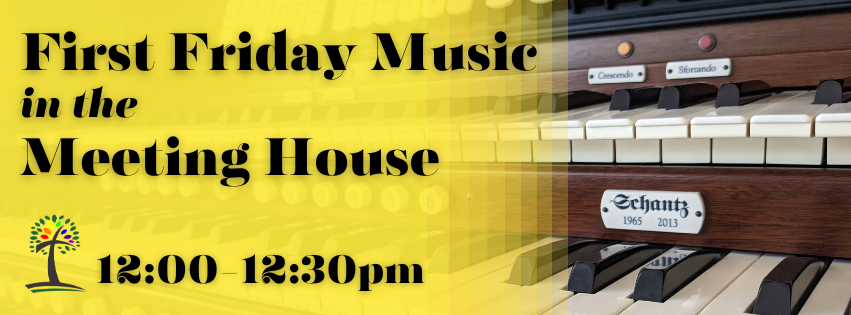
October 22, 2018
“Whose Plans?” ~ Sermon for October 21, 2018
Our New Testament reading this morning continues in Mark’s gospel.
Jesus and his disciples are journeying toward Jerusalem.
Jesus knows what awaits him there and he has told his disciples several times that death and resurrection lie ahead.
For the disciples, this is a hard concept to grasp.
They have each struggled with it in their own way.
In this morning’s passage, James and John, the sons of Zebedee, try to angle a future advantage for themselves in the situation.
Hear now a reading from the Book of Mark 10:35-45.
Here ends the readingof God’s holy word. May God add to our hearing and understanding, God’s blessing. Amen.
Please pray with me.
Most High, your Anointed One offered himself freely as witness against our violence, our acts of oppression, and our sin.
As you delighted to call him your Son, give us the courage to bring you equal delight by our willingness to drink the cup of sacrifice on behalf of our sisters and brothers, and, with them, offer you praise unceasing and lives transformed as true heirs of your grace-filled realm.
May the words of my mouth and the meditations of my heart be acceptable to you, O Lord, my rock and my redeemer. Amen.
Sermon
I’m glad that you are here this morning because I want to talk to you about my leaving and about transitions and about the challenges of listening to God’s call to discern the future.
First, to dispel a few of the myths and rumors going around.
I am not sick, though I do feel spiritually undernourished at this moment.
I am in need of some soul-tending and spiritual replenishment.
My call to ministry has always been about serving others and that is where I find my joy.
Worrying about budgets and staffing and petty grievances leaves me feeling weary.
Second, I am not leaving because Joe has retired from the hospital.
I am leaving on my own accord because I believe it is time for new leadership in our church.
I believe that together we have brought our church to a position of strength.
Our finances are strong, our building is sound, our membership continues to grow, we are well-respected in the community…however, I have been unable these past eight years to integrate our sacred and secular selves.
With love, I point out that there are some areas of idol worship in our life together that undermine our ability to answer God’s call to love with our whole heart, soul and mind.
Of course we are human and we most often do our absolute best to live out our Christian values.
My expectations are perhaps too high, but I believe in you.
My prayer for us is that we will all be strengthened by my leaving.
I will be challenged to listen for God’s call to discern what is next for me.
You will be challenged to articulate your vision for this church, to make some hard decisions about priorities.
Today’s scripture provides us with some insight as to what happens when transitions are expected.
We can only guess what’s going on in the minds of the disciples as they walk the dusty roads with Jesus.
For a while now, they haven’t known (or remembered) that Jerusalem is their destination, and over the past three chapters in Mark, it seems that they haven’t wanted to know why they’re on this journey in the first place.
Three times now Jesus has told them, directly, what’s going to happen, that he is going to die, and each time, they react badly, seeming to miss his point entirely.
A few chapters back you will remember Peter actually rebuked Jesus for talking about his rejection and suffering, and Jesus responded by calling him “Satan.”
As they continued on their way Jesus has used the time for some in-depth, private lessons for his disciples, he once again spoke of his coming betrayal and death, and his rising again.
Understandably they had a particularly difficult time understanding that last part.
The disciples’ response was a lively argument, which didn’t escape Jesus’ notice, over who among them was “the greatest.”
And now, in this tenth chapter, as Mark’s long introduction to the passion narrative comes to an end Jesus is telling them one more time that he is going to Jerusalem to face his death.
Of course, we wonder why the disciples seem to be befuddled.
How could they not get it?
However, one commentator points out that perhaps the disciples totally get what Jesus is saying.
Charles Campbell observes that in that case, they are understandably afraid, and, rather than going after power, they react as human beings naturally do: they seek security.
Campbell suggests that humans have made many mistakes by reacting to fear and seeking security, even violating many of our most important values and beliefs.
We want to make sure that, no matter what happens, our place and our safety are secured; if we know that, we think we can handle whatever comes.
Are the disciples speaking from anxiety?
Or could it be that they are speaking out of deep faith?
James and John remind us that we never really grow out of the childish feeling of needing reassurance that we are loved (more than anyone else).
When they ask to sit beside Jesus in heaven, they are really asking, “Are we your favorites?”
The question seems arrogant, but could their arrogance really be insecurity?
James and John can’t bring themselves to ask Jesus for what they really want: simple reassurance that he loves them and will never leave them.
Most of us can relate.
When we’re afraid of rejection, we pretend we don’t care;
When we’re afraid of failing, we pretend we’re too cool to try.
But if we trust in Jesus, we can abandon our fears and discover the freedom that comes not from false arrogance, but from true humility.
One commentator suggested: As long as we recognize our own “Zebedee inclinations,” it seems reasonable to be disappointed in the disciple’s strategic plan for Jesus, their big picture for his ministry.
Their religious imagination, it seems, has failed them.
They’re going with the same old categories and assumptions that they’ve always had, and simply inserting themselves into those places of prestige and power.
Instead of growing closer to Jesus’ radical vision of the reign of God they struggle with walking away from their old and long-cherished expectations, identified by one writer as “those surreptitious nets of desire for personal power and glory that entangle and trap us all, each in our own age, in our own way.”
Jesus responds to the disciples’ cluelessness with a very difficult question: Are they able to drink the same cup and be baptized with the same baptism that he has received?
Their response is embarrassingly swift: “We are able.”
They apparently have no idea what Jesus is talking about.
Marcus Borg’s reflection on this text suggests “drinking the cup” and “baptism,” were “images for death.”
While Jesus is referring to his own violent death, and many of his early followers were killed for their beliefs, Borg speaks of this kind of dying as a metaphor with two meanings.
He asserts that both deaths are at the core of our Christian faith: “a dying of the self as the center of its own concern” and “a dying to the world as the center of security and identity.”
That kind of dying, Borg says, leads to transformation, when we lose our self-absorbed insecurities and are reborn: “the radical recentering brings about a change so sharp that it can be described as dying to an old life and being born into a new life.”
It happens to different people in different ways (and we don’t accomplish it–it happens to us), whether sudden or by a long journey, but it surely involves “a letting go.”
The disciples dream of power.
They couldn’t imagine a transformed world – they simply imagined themselves repositioned in the world they were familiar with.
Jesus, however is about up-ending the status quo and paying far more attention to serving than being served.
He urges his disciples not to be like the Gentiles with all their lording over others, their prestige and position and the bullying that comes with them.
Don’t be like that, Jesus says, “it is not so among you.”
“It is not so among you.”
The reign of God is so very different from our conventional way of doing things, and our conventional beliefs about what is best.
I call on you, beloved community of Salisbury Congregational Church to recommit yourselves to a life of service.
It is not enough to say ‘Praise the Lord.’
You must live it.
You must go out into the world and spread the abundant love of God everywhere you go.
Let your light shine.
Let us pray.
Gracious and Holy God, God of transformation be with us this day as we look to the future and try and discern your will for us.
Help us to hear your voice above all others and guide us to lives of compassion.
Grant us the grace, we pray to be followers of Jesus Christ, blessed with the gifts of your holy spirit.
Let us be Christians in every sense of the word: caring, loving, compassionate, patient and kind.
Open our hearts and souls that we might nurture a life-sustaining faith.
Creator of all, we want to love you and serve you with our whole hearts, minds and souls. Help us.
Hear our prayers this day for those whom we love.
For those who are sick, we pray for healing.
For those who mourn, we pray for comfort.
For those who suffer injuries and illnesses when they are far from home, we pray for comfort.
For those who are afraid of the unkown, may their trust in you bring peace.
We pray this day for our church, that it might continue to respond to your call for justice and peace in the world.
Hear now our silent prayers as we turn our hearts to you….

